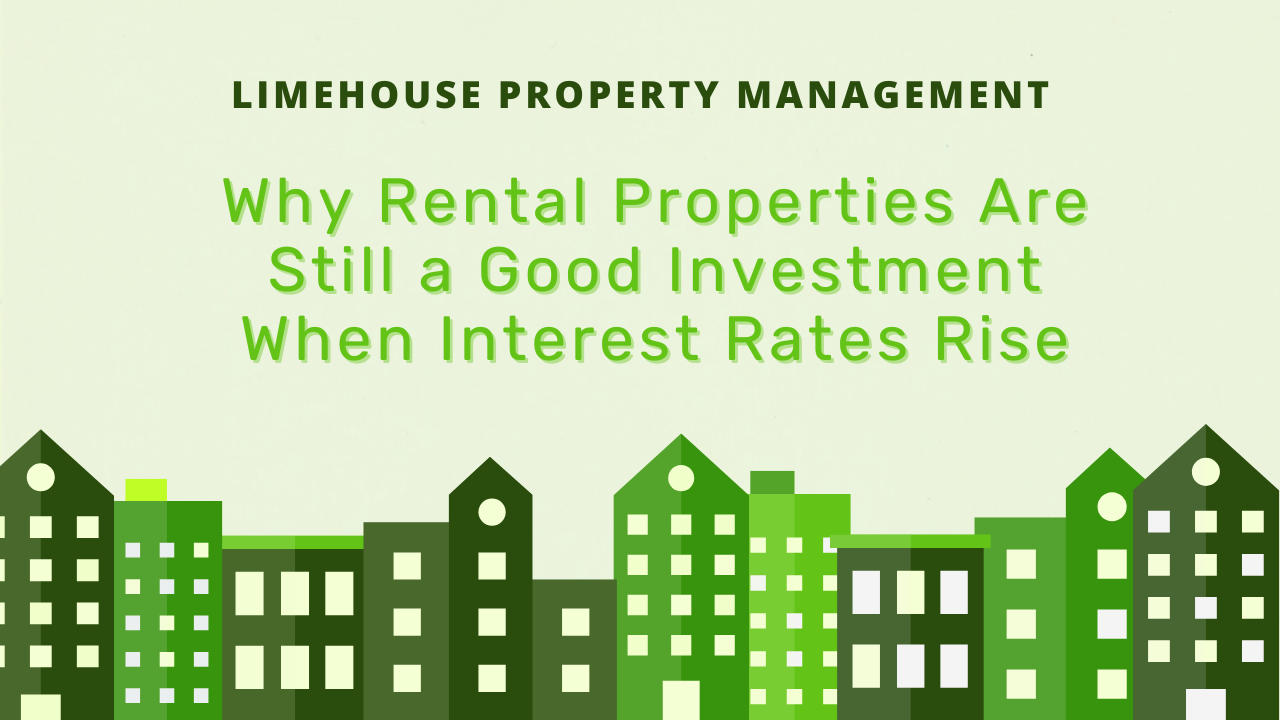Why Rental Properties Are Still a Good Investment When Interest Rates Rise

In an economic climate where rising interest rates dominate headlines, many investors may feel uncertain about the viability of rental properties. However, despite the challenges posed by higher borrowing costs, real estate continues to offer compelling advantages that make it a resilient and profitable investment.
By focusing on long-term strategies and adapting to market shifts, savvy investors can leverage rental properties as a reliable asset, even when interest rates are on the rise. This article explores why rental properties remain a smart choice and how they can provide stability and growth in an ever-changing financial landscape.
Why Rising Interest Rates Shouldn’t Deter Real Estate Investors
Below, we explore key reasons why rental properties remain a smart choice even in a high-interest-rate environment.
1. Rental Demand Often Increases with Rising Interest Rates
When interest rates rise, it becomes more challenging for many prospective homebuyers to afford mortgages. As a result, more people turn to renting as a cost-effective alternative, which significantly increases the demand for rental properties.
High demand enables landlords to keep vacancies low and even consider increasing rental rates to match market needs. As an investor, you can benefit from this consistent demand and maintain a steady income stream even if borrowing costs increase.

2. Stable Income Stream
Long-term leases offer reliable rental income, providing financial stability during periods of high interest rates. Unlike volatile investments like stocks and bonds, the steady cash flow from leases helps investors manage rising borrowing costs while maintaining profitability.
By reducing the risks of frequent tenant turnover and ensuring predictable income, long-term leases create a dependable financial buffer. For property owners, this consistency is crucial for covering expenses and sustaining profitability in uncertain economic conditions, making rental properties a resilient investment choice.
3. Opportunity for Equity Growth
Every mortgage payment contributes to building equity in the property, creating long-term value for investors. This process is particularly impactful in the early years of ownership, even when interest costs are higher.
As time passes, property values typically appreciate while debt decreases, significantly boosting equity. This growing equity not only enhances the property’s financial worth but also serves as a powerful financial tool. Owners can leverage it for future investments, secure additional financing, or sell the property for a substantial profit down the line.
4. Inflation Hedge
Real estate tends to appreciate over time, providing a natural hedge against inflation. While inflation may reduce the value of cash holdings, property values and rental rates generally tend to increase, allowing real estate investors to protect their capital.
By investing in a rental property during high-interest-rate environments, you can secure an asset that maintains or even grows in value, creating long-term wealth despite market fluctuations.

5. Multiple Financing Options
While traditional mortgages are the most common method, there are many alternative financing options for purchasing a rental property. For instance, seller financing, partnerships, private lenders, and cash-out refinancing allow you to secure funding without relying entirely on traditional bank loans with high rates.
The alternative financing options can allow you to structure deals that better align with your cash flow goals, mitigating the impact of interest rate hikes and increasing profitability. By choosing the right financing option for your situation, you can reduce borrowing costs or spread out expenses, ensuring the long-term profitability of your investment.
6. Ability to Refinance Later
Believe it or not, mortgages are not as strict as one may think. Strategies such as refinancing allow investors to make use of current market opportunities without being indefinitely locked into a high-interest-rate mortgage.
If, for instance, you purchase a rental property during a period with high interest rates, you may have the option to refinance your mortgage if rates decrease in the future.
By refinancing at a lower rate, you can reduce monthly mortgage payments and improve your cash flow, ultimately increasing the profitability of your investment.
7. Building a Diversified Real Estate Portfolio
When it comes to investing, you shouldn’t put all your eggs in one basket. If you were to invest all your money in one type of investment, such as stocks or only one property, you could easily lose all your funds if the market crashes. That’s why experienced investors try to allocate their funds to different types of assets.

If you already own multiple properties, purchasing a new rental property during a high-interest rate period can actually enhance your portfolio. High-interest rate environments often correlate with economic shifts, so a well-diversified portfolio with properties acquired under different conditions can help spread risk.
8. Tax Benefits and Deductions
Real estate investors can benefit from various tax deductions that can offset expenses, including interest payments. Common deductions include mortgage interest, property taxes, maintenance costs, and depreciation.
These tax benefits reduce your taxable income, mitigating some of the effects of rising interest rates and ensuring that your investment remains profitable for the long term.
9. Increased Profitability Through Quality Property Management Solutions
Professional property management services can help streamline your rental operations and increase profitability. From marketing vacancies effectively to negotiating higher rental rates, a knowledgeable property manager can do many things to maximize the returns of your investment.
Skilled management can also reduce tenant turnover, saving costs associated with vacancies and re-leasing. By leveraging property management solutions, you can focus on growing your portfolio while ensuring rental properties remain profitable, even when interest rates are on the rise.
Bottom Line
You’ve probably heard that it’s better not to invest in real estate during periods with high interest rates. While it’s true that rising interest rates tend to increase the cost of financing (and the overall cost of living), they don’t necessarily affect the profitability of rental properties.
By leveraging tax benefits, maintaining a stable income stream, and making use of quality property management solutions, you can ensure your rental investment remains profitable even when interest rates rise.
If you’re considering investing in a rental property in Virginia Beach, contact Limehouse Property Management! Our team can help you find the right property to expand your portfolio.
